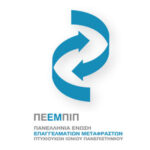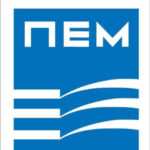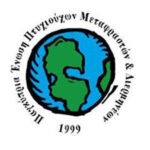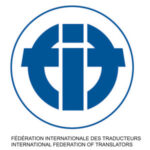FAQ
Frequent Questions and Answers
There are three major types of interpreting: simultaneous, consecutive, whispering.
Simultaneous interpreting is a mode of interpreting in which the speaker makes a speech and the interpreter reformulates the speech into a language his audience understands at the same time (or simultaneously). Simultaneous interpreters work in an interpreting booth and special equipment is needed.
Consecutive interpreting is a mode of interpreting in which the speaker makes a speech (or says a few sentences) whilst the interpreter takes notes. The interpreter then reproduces what the speaker has said for the audience. The interpreter is normally standing or sitting close to the speaker, uses a pad and pen to take notes and uses the microphone (if there is one) only once the speaker has finished and it is his turn to speak. Consecutive interpreting is heavily based on the use of the interpreter’s short-term memory. This is why the speaker should keep in mind to frequently pause their speech, as the short-term memory cannot function for a long time.
Whispered interpreting or whispering is the technique also called chuchotage, from French. The interpreter whispers into the ear of the delegate, as the speaker makes their presentation. It is actually very similar to simultaneous interpreting, but it can only be offered to a very limited number of people (usually 1-3 clients listening to the interpreter). No special equipment is needed.
Each type has advantages and disadvantages. To decide what kind of interpreting to offer at your event, you’ll need to assess the needs of your audience and speakers as well as the budget you can allocate. Our team is here to assist you with that. Contact us at info@translationembassy.com.
To book the right interpreters for your event, you should consider:
- Their training/education
- Their experience
- The subject of your event
Our team is here to help you make the right choice. Contact us at info@translationembassy.com.
Complete the form to request a quote and we will get back to you with all the details you need.
Official translations are translated documents which end up with public (or even private) authorities and are used as evidence or supporting documents which determine the outcome of various cases. Just some examples include:
- translations used as evidence in court and determining the outcome of a trial
- translations submitted as supporting documents to social security providers which affect acceptance or rejection of a pension application or the pension amount
- translations of medical opinions and examinations submitted to hospitals used to determine how to continue treatment
- translations of qualifications and supporting documents which will affect the decision whether or not an employee meets recruitment criteria
- translations of technical specifications and declarations of conformity with the relevant legislation under which marketing authorisations for imported products are granted
- translations of tax documents requested to handle various cases at tax offices, etc.
These are official translations and differ from the ordinary translations in that the translator is called upon to affix his/her signature and seal and thereby assume legal responsibility for the correctness and accuracy of the translation.
Although translation in general is not a closed profession (meaning that anyone can register as a translator with the tax office) in the case of official translations, precisely because of the criticality of the documents outlined above, the law only grants the right to do official translations to specific groups of professionals.
As far as translators in the free market are concerned, the Greek State grants translation graduates from the Ionian University the right to do official translations. The right of translation graduates of the Ionian University derives from Presidential Decree 169 of 17.6.2002 (Government Gazette 156/2.7.2002) and in particular Decision No. ΔΙΣΚΠΟ/Φ22/5583 of the Ministry of the Interior and Council of State Judgment No. 2799/2013. Ionian University graduates are also included as official translators in many circulars from various departments.
The translations done by translation graduates from the Ionian University are recognised by public and private bodies in Greece and abroad. I fall into this category because I am a graduate of the Department of Foreign Languages, Translation and Interpreting of the Ionian University and a member of the Panhellenic Association of Professional Translation Graduates of the Ionian University (PEEMPIP). So, since I have the right to sign and certify my translations, I can assist you in your dealings with the authorities.
Others entitled to prepare official translations in Greece are:
- The Ministry of Foreign Affairs’ Translation Service for translation of foreign-language documents into Greek and Greek documents into a foreign language
- Lawyers, who can only translate foreign documents into Greek (after completing my studies at the Athens Law School I will be able to sign in my capacity as a lawyer too).
- Notaries public, whose right is limited to translating foreign-language documents which are useful in preparing decisions within their remit into Greek.
All official translations done by the aforementioned bodies/persons have equal effect. In order to ensure better customer service, I recommend that you check first with the department/body you plan to file the documents with, to see whether they will accept the translations, since some bodies may follow special rules and have specific, express requirements that you will need to comply with.
Once you’ve clarified who you will assign the official translation to, the next step is to prepare your documents. To that end, it is a good idea to take into account the following information.
The original text will be attached to the official translation and the two documents together constitute a single, integral whole. The original, which is to be attached to the certified translation, may be in the following formats:
- An ordinary copy of the original: It can be delivered in hard copy or electronic format. If you opt for electronic format, I always recommend that you send it in PDF format to make it easier to print a copy.
- The authentic document you have in your possession: If it is necessary for the authentic document to be attached to the translation, and not a copy thereof, it should only be delivered in hard copy. In this case you can bring it to my office or send it by mail.
- A certified original or certified copy of the original: It must also be provided in hard copy. In this case you can bring it to my office or send it by mail. Where any certification of the original or a copy thereof is required, such as a Hague Apostille or an original certified by consular authorities, such certification must be affixed to the documents before the translation process commences.
Which of the above formats you will choose depends primarily on the rules set by the department the documents are to be submitted to. It is always a good idea to clarify things with the competent officer in advance before the translation process commences.
Consulates do not provide translation services to the public. What they usually do is collaborate with official translators in their region to meet their own needs. In other words, if a procedure is to be carried out locally, say at the Stuttgart consulate for example, then employees will not send the citizen to Athens to get official translations done and bring them to it. It is reasonable and more practical to recommend a translator who works locally. However, that does not mean that all documents issued in Germany must necessarily be translated in the same way. If you’re already in Greece, it is preferable and more practical to contact one of the bodies/persons described above. In effect, you should be guided by the body to which the documents are to be submitted. Since each country has its own rules on accepting official translations, it is always a good idea to request clarifications from the competent department before you start the translation process.







